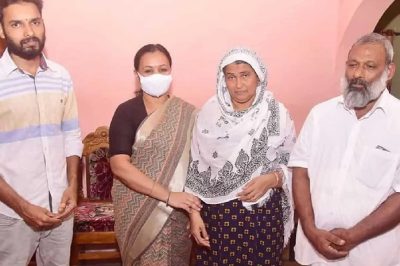Affected by the incident, the couple donated their ancestral land to LIFE Mission, the State government’s flagship housing scheme for the landless.
“After that incident, we decided to make use of the land to help the needy instead of going for hajj,” Haneefa said.
Hailing the couple’s decision, local Self-Government Minister M V Govindan said it was an inspiration to society.
“People like Haneefa and Jasmine have set an example of humanity and are role models for society,” Govindan said.
Last year, a Muslim couple from Maharashtra, India, donated their hajj money to help the poor affected by the COVID-19 pandemic.
In 2020, Shirin Nazirmadova, a doctor from southern Tajikistan, also decided to donate hajj savings to her local Farkhor district hospital to buy much-needed supplies to battle the coronavirus.
Hajj ceremonies symbolize the essential concepts of the Islamic faith. It commemorates the trials of Prophet Abraham and his family.
Every able-bodied adult Muslim who can financially afford the trip must perform Hajj at least once in a lifetime.



